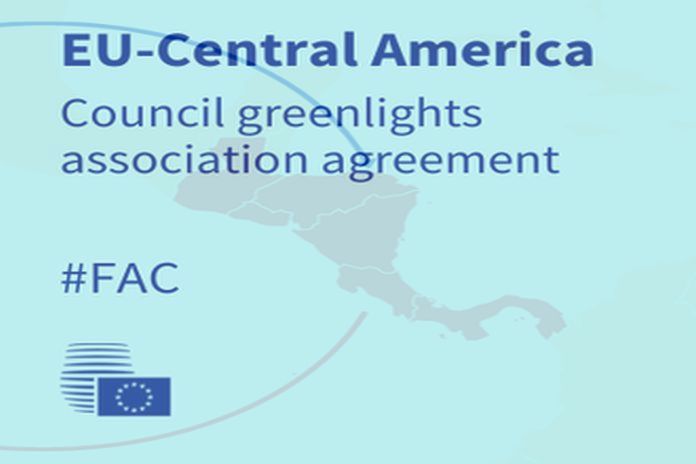BRUSSELS, BELGIUM – The EU Council adopted a decision to conclude the agreement establishing an association between the European Union and its member states, on the one hand, and Central America on the other.
This is the final step of the ratification process of the agreement, through which the EU and Central America commit to a close, long-term relationship in all main policy areas. It will allow the full implementation of the agreement on the first day of the month following the notification by the EU to the Central American counterparts. The full entry into force will give an important impetus to the bi-regional relations.
The agreement aims to strengthen and consolidate the relations between the parties through an association based on three mutually reinforcing and fundamental parts: political dialogue, cooperation and trade.
Furthermore, it will:
- Develop a privileged political partnership based on values, principles and common objectives, in particular the respect for and the promotion of democracy and human rights, sustainable development, good governance and the rule of law;
- Enhance bi-regional cooperation between the EU and Central America in all areas of common interest;
- Expand and diversify the parties’ bi-regional trade relation in conformity with the World Trade Organization (WTO) agreement and this agreement;
- Strengthen and deepen regional integration in areas of common interest;
- Reinforce good neighbourly relations and the principle of peaceful resolution of disputes;
- Maintain and develop the level of good governance, social, labour and environmental standards;
- Foster increased trade and investment among the parties.
Meanwhile, the trade pillar of the association agreement has played an important role in promoting trade and investment between Europe and Central America. It has been provisionally applied since 1 August 2013 with Honduras, Nicaragua and Panama, since 1 October 2013 with Costa Rica and El Salvador, and since 1 December 2013 with Guatemala.
This has made it easier and cheaper to commercialize products to and from Central America, as a result bilateral trade has significantly increased eliminated most import tariffs and improved access to government procurement and investment markets. It creates a more predictable environment for trade in Central America, with a mediation mechanism for non-tariff barriers and a bilateral dispute settlement mechanism. Furthermore, interaction with civil society under the trade and sustainable development chapter have proven fruitful to highlight broader benefits of the agreement.
In addition, the agreement will also provide a strengthened enabling framework for the implementation of the EU’s Global Gateway investment strategy, supporting infrastructure and improving global and regional connectivity in the digital, climate, transport, health, energy and education sectors.
On 29 June 2012 the EU and the Central American states (Costa Rica, El Salvador, Guatemala, Honduras, Nicaragua and Panama), signed the agreement in Tegucigalpa, Honduras. The European parliament gave its consent on 11 December 2012, and on 17 January 2024, the ratification procedures of the association agreement by member states were finalised.







